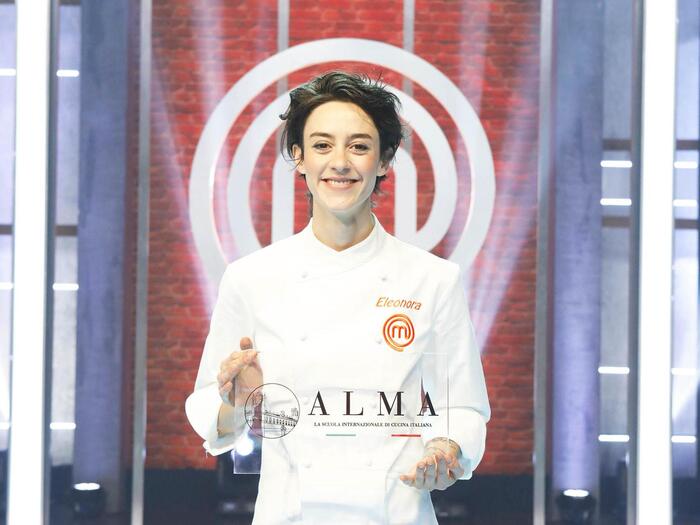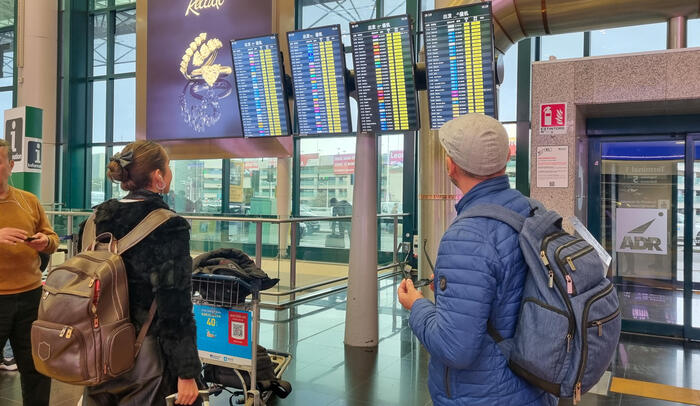Wetaca shores up his
tupperware
empire .
The Madrid food delivery company, founded in 2013 by two Galician friends, Efrén Álvarez and Andrés Casal, the former of whom was a former
MasterChef
contestant , already obtains more than half of its income through the weekly subscription it launched in July 2021, which prevents the customer from selecting the dishes they want one by one.
A business development that, according to Casal, will lead the firm to a turnover of between 13 and 14 million euros in 2022, compared to almost 10 the previous year.
“It has been without a doubt our greatest evolution, the result of a strategy rather than an organic behavior”, he affirms during an interview by video call.
It refers to the fact that the movement started from the reflection on customer data.
“We found that one in 10 made an average of 2.4 orders per month after a year, which showed that they made a third of their meals with us, and from this we deduced that we had achieved the most difficult thing, that they trusted us their feeding.
But then the challenge was to raise that ratio, because one eats every day, not every three”, the entrepreneur ironically.
To achieve this, they came up with the idea of directing a subscription to this group of loyal users.
They would receive a personalized meal list each week that they could modify online and drop at any time.
The objective was to guarantee orders those weeks in which the client, due to lack of time or less interest, would not order otherwise.
In exchange, the company set a single price per dish of 5.95 euros, slightly below the average value.
A year and a half later, with the option extended to all users and the plate at 6.49 euros, 9% more, the number of units per order remains stable, between 6 and 7, and the average ticket, between 40 and 45 euros, but the chapter that most interested them has grown, weekly orders, which have gone from 5,600 to more than 7,000.
Casal believes that the new strategy also reinforces "Wetaca's image as a company focused on food" and opposed to the main players in the sector, such as Uber Eats or Glovo, whose logistics model is supported by high commissions of up to 45%, which they charge to the restaurateur.
The company has developed, in any case, at the rate of food delivery, which in Spain grew by 63% between 2019 and 2021, up to 2,480 million euros, and represents 8% of the restaurant market, according to the consultancy The NPD Group.
Cost increase
However, the increase in the price of raw materials and energy (they use gas for the stoves and electricity for packaging and cold rooms) is preventing the income boom from translating into profits.
Wetaca obtained 190,000 euros of benefits in 2020, but lost money again (200,000 euros) in 2021. While waiting to close the 2022 financial year, if they manage to recover the benefits "it will be very modestly".
"There have been months, such as August, in which energy has accounted for 4.5% of our sales, triple that of a year before, and this taking into account that we now bill more," illustrates Casal, adding that as soon as to food, the price increase has been 15%.
Since they cannot do much on the supplier side, they have been trying for months to reduce their spending on logistics.
Wetaca has a peculiar delivery system.
It does not have delivery people — it uses Seur Frío and 25 other transport companies that, Casal guarantees, “hire their
riders
”—, but the routes are prepared by the company itself.
"Customers have until Wednesday to manage their order and, depending on the number of orders and locations, we hire a certain number of vehicles and hours," reveals the businessman, and explains how they have managed to reduce the cost per delivery: "Through a change in the dimensions of the delivery boxes, we can now serve up to 40 orders per route, when before the maximum was 32, and, in parallel, to overcome the rise in fuel, we are increasingly opting for electric vehicles."
These measures abound, in turn, in the firm's sustainability strategy, a "fundamental" chapter due to the obvious "pernicious effect" caused by its close dependence on single-use plastics.
In addition to having modified the polymer of its
tuppers
to make it more friendly to the infrared used in recycling plants, since 2019 Wetaca has been part of the Canadian Plastic Bank initiative, through which they pay to remove the same amount from the environment of material they generate: 5,600 kilos each month.
"It is the fundamental piece that allows us, if the client recycles the containers, not only to reduce our impact, but also to make it positive," summarizes Casal.
green mark
They are especially interested in promoting this green brand image because it is related to their clientele, largely urban, with economic resources and a relative social and environmental sensitivity.
Among its challenges is also to increase its presence outside Madrid and Barcelona, cities that today account for 70% of revenue, and, "very soon", increase production capacity.
"Currently, we can serve 10,000 weekly orders, but we have plans to raise that limit to 25,000," says Casal.
Wetaca cooks about 40 dishes a week, all of them without preservatives or additives, in rented facilities in the Madrid neighborhood of Villaverde, and for this he would have to increase the current work surface, 2,400 square meters, to almost double, 4,200.
The founders, who retain ownership of 70% of the company after raising more than two million euros in various rounds and both operate as CEOs, are not considering internationalization or receiving new financial injections.
“We have often linked them to expanding operations in new cities and today the focus is on achieving that goal organically,” says Casal.
Only one incident in June 2021, when the company asked its customers to discard all their dishes because "some of them did not meet the highest quality standards", broke the harmony in a business that, even before the launch of subscriptions, was heavily dependent on an ever-growing handful of faithful.
Users demanded more detailed explanations, and did not receive them.
"In the end, there was nothing worrisome, and that was the reason for not adding anything," Casal sums up a year and a half later.

/cloudfront-eu-central-1.images.arcpublishing.com/prisa/22GKSO7JXFBMPJJE4PTGSFJZ2U.jpg)
/cloudfront-eu-central-1.images.arcpublishing.com/prisa/DQGB2T2A6BCRPADKKCEC7T3Q3E.jpg)












